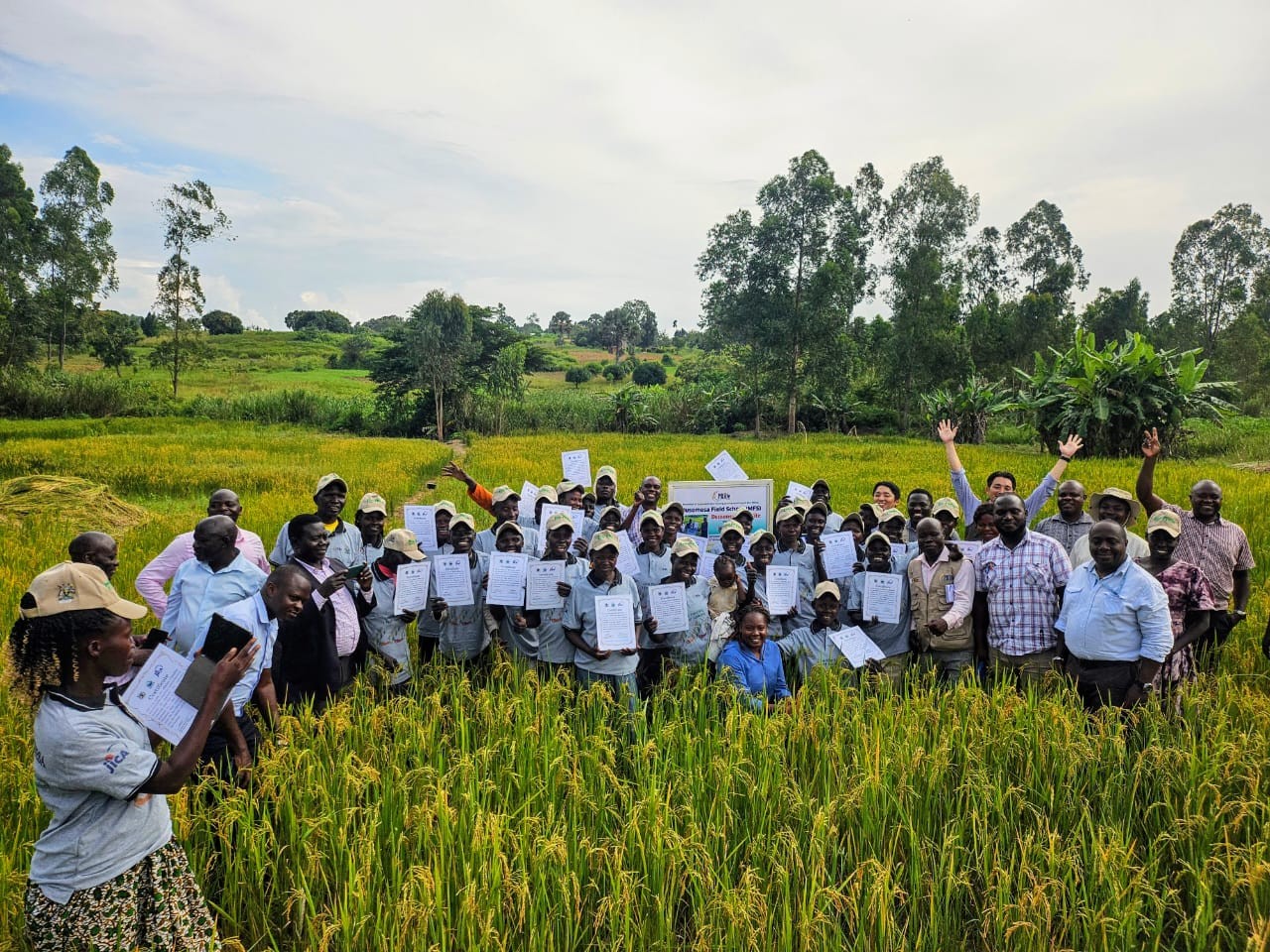NEBBI, November 10, 2025 — The Ministry of Agriculture, Animal Industry and Fisheries [MAAIF], in collaboration with the National Agricultural Research Organisation [NARO] and the Japan International Cooperation Agencies [JICA], has equipped 28 farmers in West Nile with practical skills in rice cultivation in a bid to promote sustainable rice production in the subregion.
Frank Mugabi, Head of Communication at NARO while speaking during the event held recently in Nyadri Sub-county, Maracha district, stated that, as part of capacity building, 13 district agricultural officers from Koboko, Maracha, Yumbe, Nebbi, Moyo, Obongi and Madi-Okollo have been trained in modern rice cultivation technologies under a farmer-to-farmer approach.
He noted that the five-year initiative, now in its second year of implementation, aims to improve farmers’ livelihoods and contribute to regional economic growth.
He said high rice yields recorded among trained farmers in the beneficiary region demonstrate that adopting modern rice technologies and innovations can create food- and income-secure communities, a vision aligned with Uganda’s national development goals.
“For decades, the West Nile sub-region was synonymous with tobacco cultivation alongside traditional staple food crops such as cassava and millet. With rice cultivation now taking root and emerging as both a food security and income-generating alternative for farmers, we believe the promotion of the sustainable rice development project is the way forward,” Mugabi said.
The JICA representative to Uganda, Toshinori Katsumata, reaffirmed the agency’s commitment to supporting the ECO-PRiDe project and strengthening Uganda’s rice value chain.
Katsumata noted that JICA Uganda remains dedicated to supporting agricultural transformation through technology transfer, farmer training and research collaboration with national institutions such as NARO and MAAIF.
He emphasised that empowering smallholder farmers with practical knowledge and access to improved seed and production methods is key to achieving sustainable food systems and rural development.
Meanwhile, the Parish Chief of Nyadri Sub-county, Maracha district, Aseru Beatrice, said that rice cultivation, supported by funding from the Parish Development Model [PDM], has strong potential to help local farmers lift themselves out of poverty.
She added that rice cultivation is rapidly gaining prominence in the region and is now ranked among West Nile’s top five most popular crops due to its dual role as both a staple food and a lucrative cash crop.
According to statistics from NARO, rice production in Uganda has surged over the past 15 years from less than 300,000 metric tonnes to more than 700,000 metric tonnes.
Uganda is now over 70 percent self-sufficient in rice production, and experts project that the country could soon achieve full self-sufficiency and even become a rice-exporting nation.
Buy your copy of thecooperator magazine from one of our country-wide vending points or an e-copy on emag.thecooperator.news
